The 20 best Latino films of 2023

Hey folks, it’s Fidel. For this week’s newsletter, I’ve asked film critic and journalist Carlos Aguilar to put together a list of the best Latinx/Latin American movies of 2023. This is the second part of the Latinx Files “Best of 2023” coverage. For the best Latin songs of 2023, go here.
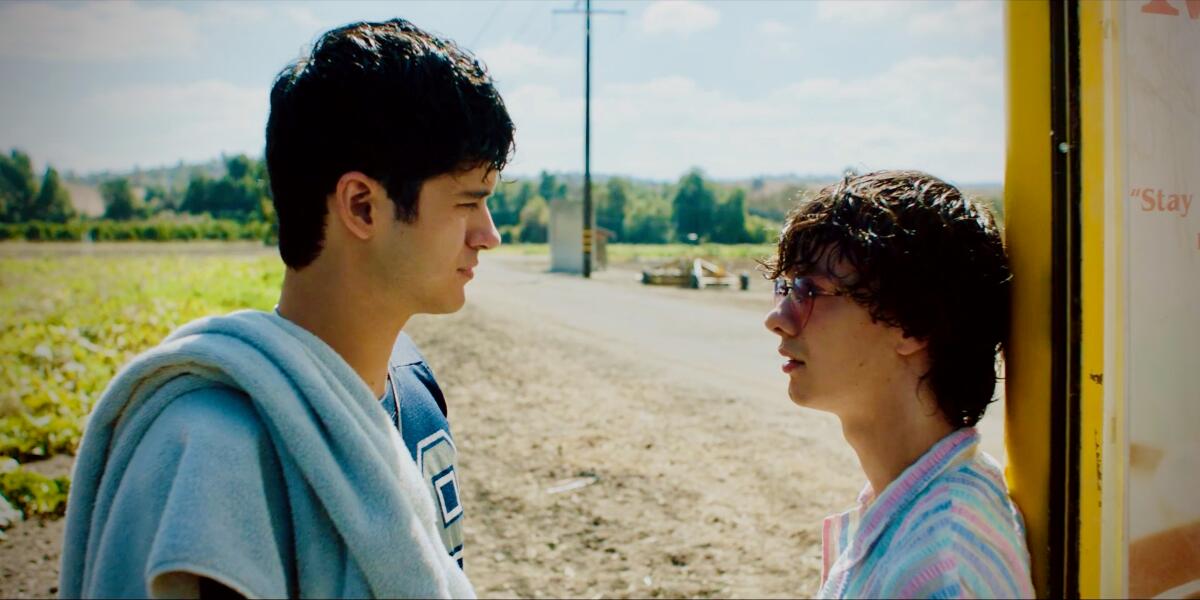
20. ‘Aristotle and Dante Discover the Secrets of the Universe’
Adapted from the popular YA novel by Benjamin Alire Sáenz, this teenage romance brings together two Mexican American boys from distinct socioeconomic backgrounds. The timidly charming Aristotle (Max Pelayo) belongs to a working-class family, while extroverted Dante (Reese Gonzales) is the son of educated intellectuals. What begins as a tender friendship evolves into a bond that challenges Aristotle’s notion of who he is and who he loves. The auspicious first feature by director Aitch Alberto includes major names such as Eva Longoria and Eugenio Derbez among its supporting cast.

19. ‘Mutt’
Over the course of a single tempestuous day in New York City, Feña (an excellent Lio Mehiel), a young trans man, navigates all of his most meaningful relationships. An awkward night of reconnection with a former romantic partner is followed by an afternoon with his younger sister, and eventually a visit from his accepting Chilean father, Pablo (Alejandro Goic). The energetic character study from Serbian Chilean director Vuk Lungulov-Klotz observes its frenzied protagonist as all the moving parts of his identity converge for an overwhelming emotional clash.
You’re reading Latinx Files
Fidel Martinez delves into the latest stories that capture the multitudes within the American Latinx community.
You may occasionally receive promotional content from the Los Angeles Times.
18. ‘Story Ave’
The Bronx takes the foreground in writer-director Aristotle Torres’ evocative first feature, expanded from his short film of the same title. When a talented yet directionless young artist Kadir (Asante Blackk) joins a graffiti gang, he’s asked to prove himself. But upon trying to rob MTA conductor Luis (Luis Guzmán) at gunpoint, the latter instead becomes an impromptu mentor. The film serves as a deserving showcase for Guzmán, an acting legend still rarely afforded nuanced parts like this, one of its most special.
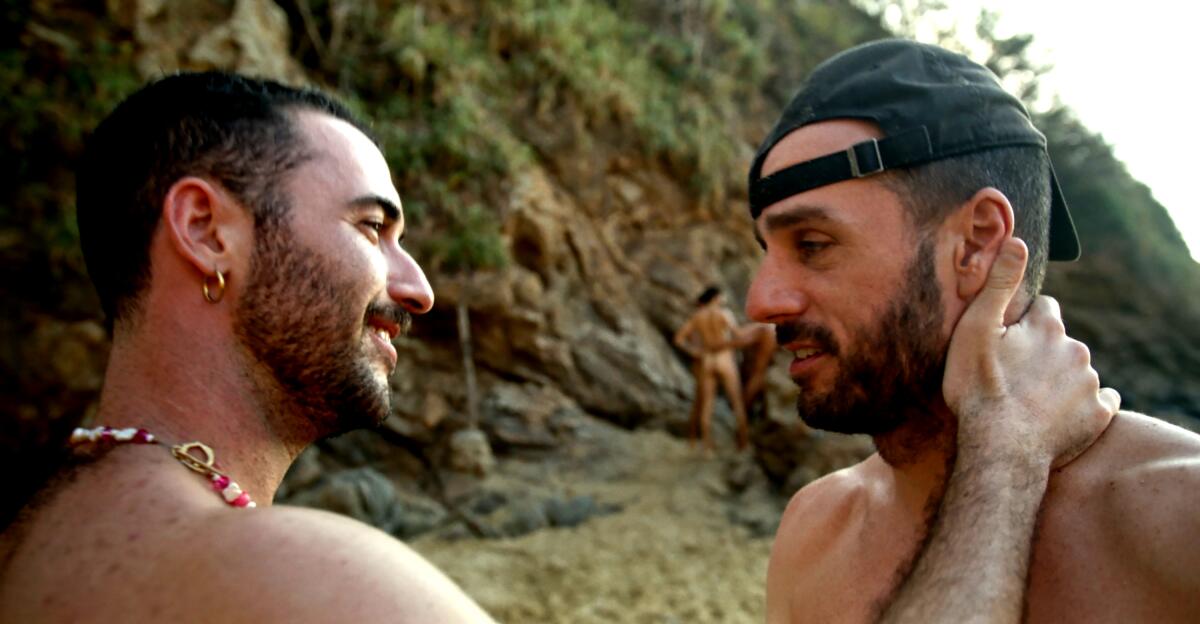
Penises galore fill the frames of Chilean provocateur Sebastián Silva’s newest exercise in uncomfortable humor. Playing a fictionalized version of himself, Silva is a suicidal filmmaker indulging in drugs and casual gay sex in Mexico, activities that lead him to meet overbearing American social media personality Jordan Firstman (also playing a meta take on himself). But when an accident changes the course of the plot, Silva’s housekeeper, Vero (the always fabulous Catalina Saavedra), emerges as an unlikely protagonist. She is the only relatable person in this effectively self-aware mockery of insufferable, entitled individuals.
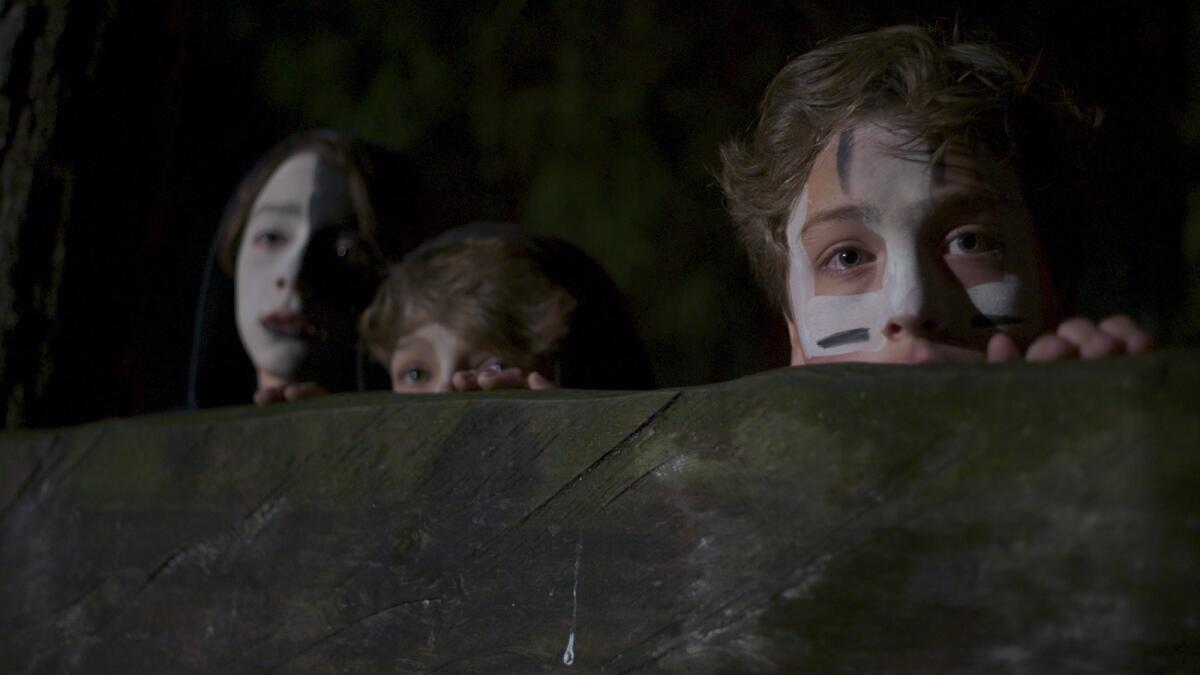
Set against the idyllic backdrop of an impossibly vivid countryside, this piercing and superbly acted psychological drama unfolds within the confines of Los Pinos, a Catholic summer camp for the sons of the elite. Instructed to fear the impoverish residents of the nearby town, these spoiled boys represent the future of the most powerful echelons of Mexican society. Underneath the façade of religious character development, racism and homophobia fester. And when the outside world threatens to penetrate this sanctuary for the privileged, violence erupts.
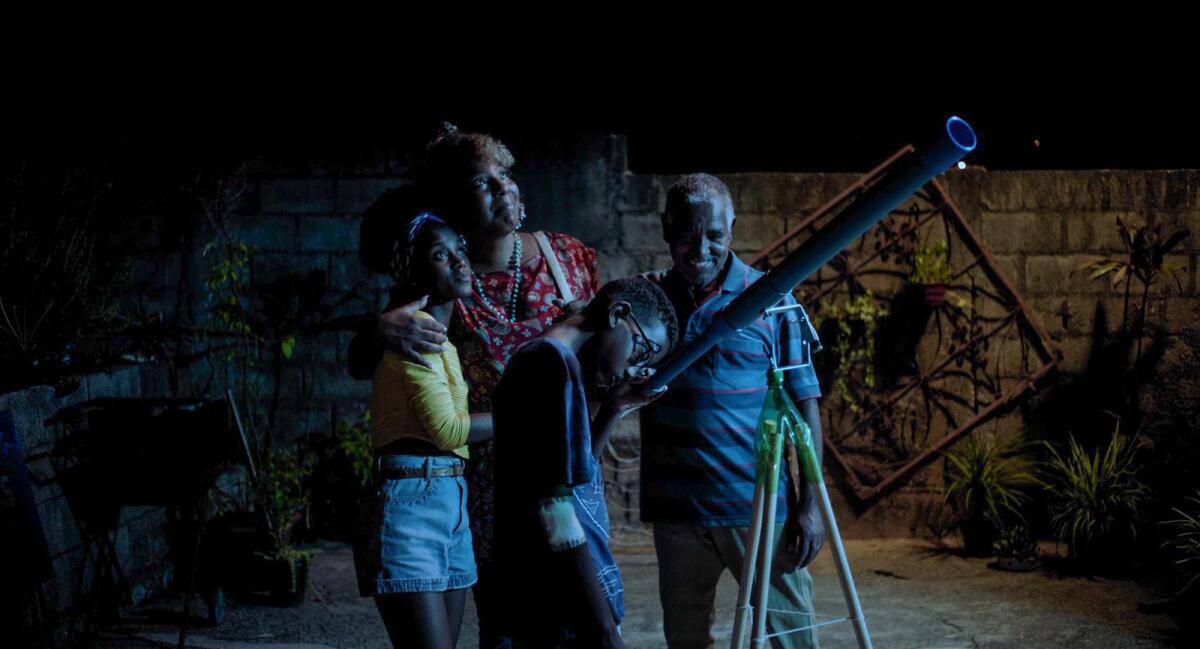
15. ‘Mars One’
This engaging ensemble piece centers on four members of a working-class Black Brazilian family, each of them undergoing their individual dramatic arc under the same roof. The young son, Deivinho (Cícero Lucas), aspires to be a scientist rather than pursue his father’s dream of becoming a professional soccer player. Older sister Eunice (Camilla Damião) hesitates to reveal her sexual orientation, while their mother struggles with her mental health and Dad faces losing his job. Together, they construct a rich tapestry of experiences from a perspective still not sufficiently seen in Latin American cinema.
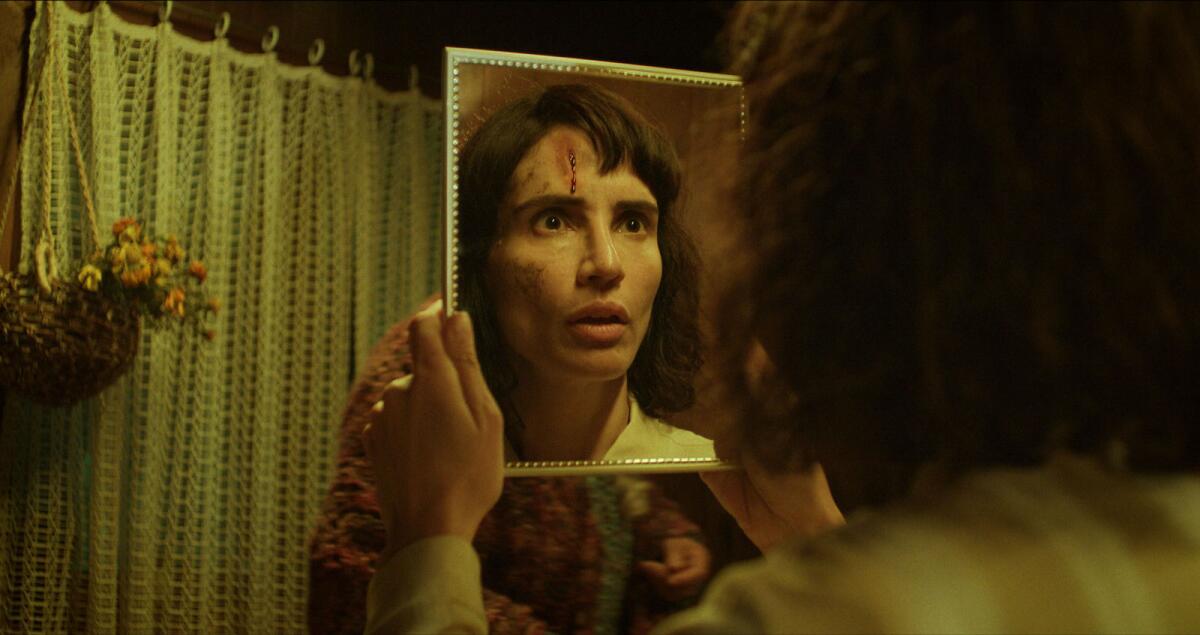
14. ‘The Cow Who Sang a Song Into the Future’
Just as its verbose title suggests, this Chilean tale is laced with magical realism, namely singing fauna warning us about what’s to come. As Cecilia (Leonor Varela) returns to her rural hometown to care for her father, her mother, Magdalena (Mía Maestro), who died decades in the past, returns from the afterlife looking exactly as the day she died. Amid the interpersonal conflict of this family, the narrative reveals itself as an unassumingly fantastical statement on humanity’s relationship with nature that urges us to commune with other living beings rather than only exploiting them.
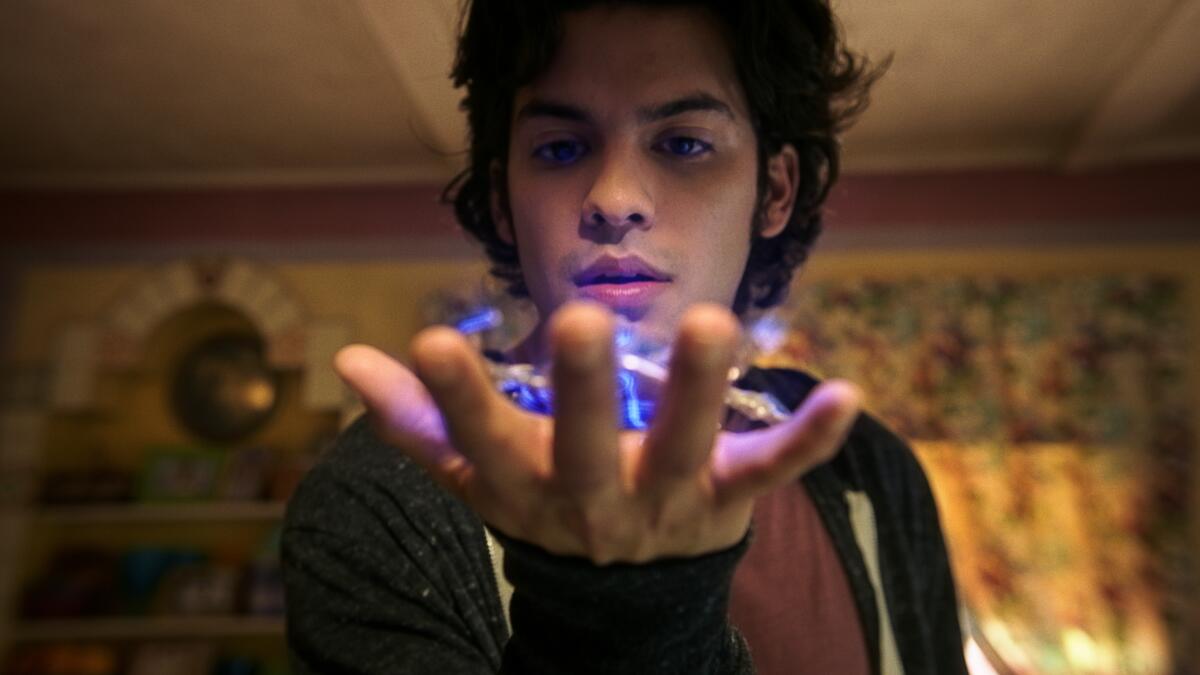
13. ‘Blue Beetle’
Thanks to Puerto Rican director Ángel Manuel Soto and screenwriter Gareth Dunnet-Alcocer, this entry into the D.C. Universe stands as the infrequent superhero movie that handles representation not as a forced addition but as an indelible part of the project’s conception. The result is a story that is enriched with a myriad of organic nods to Latino pop culture and that prioritizes the family unit as its source of both humor and heart. It follows Jaime Reyes (Xolo Maridueña), a young Mexican American man granted superhuman powers when his body becomes the host for an extraterrestrial scarab.
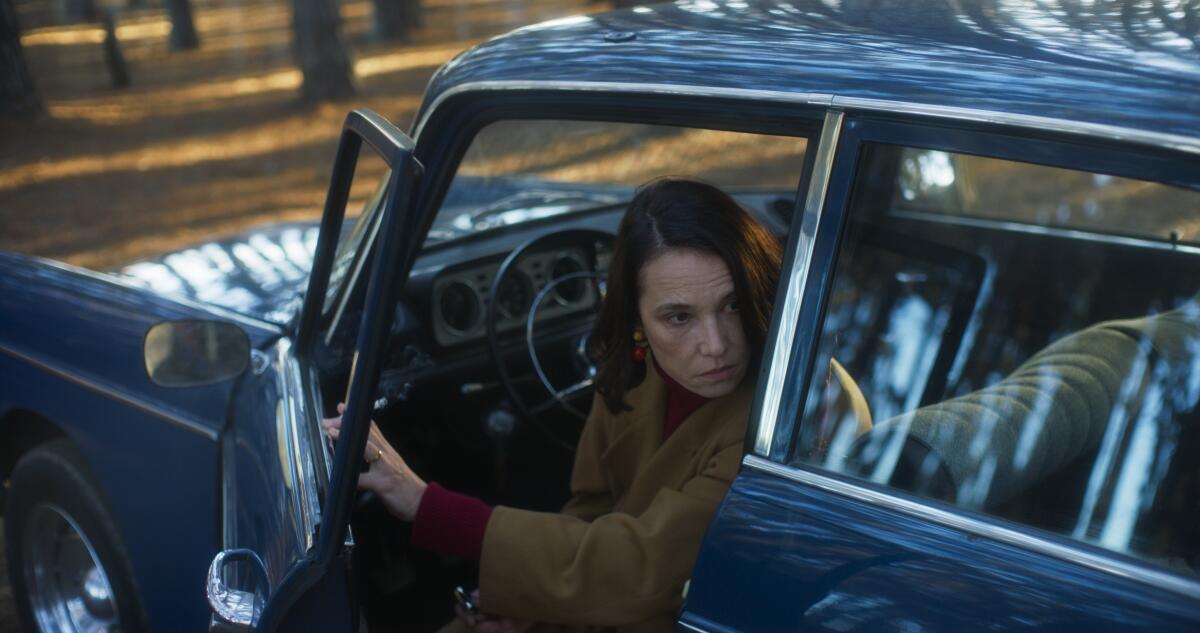
12. ‘Chile ‘76’
While comfortable as part of Chile’s upper crust, Carmen (Aline Küppenheim), a former nurse now exclusively dedicated to socialite activities, can’t entirely escape the horrors of the Pinochet dictatorship. In choosing to take a stance by helping a dissenting young man hiding from the authoritarian regime, she risks her privileged position and that of her family. Küppenheim’s restrained turn and the tension that director Manuela Martelli mines from each increasingly dangerous situation Carmen gets involved in make this a thrilling take on the South American country’s darkest period.
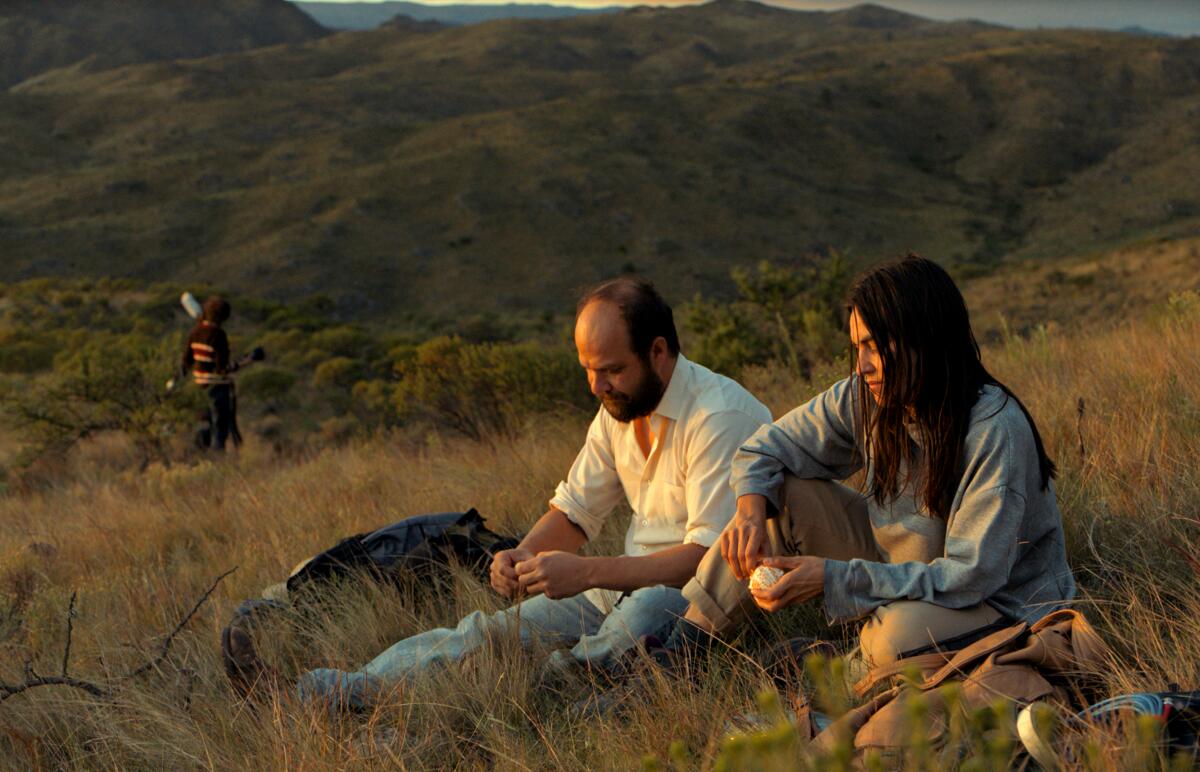
Don’t let the three-hour running time of this Argentine existentialist heist movie dissuade you from giving in to its charm. The ambitious new work by Rodrigo Moreno chronicles how two middle-age men, Morán (Daniel Elías) and Román (Esteban Bigliardi), join forces to rob their place of employment, a bank, in order to leave behind their humdrum lives. In the aftermath of their crime, they both discover that the notion of happiness they sought isn’t as simplistically perfect as they had imagined. That Moreno delivers his philosophical musings with deadpan humor is what keeps the film consistently entertaining.

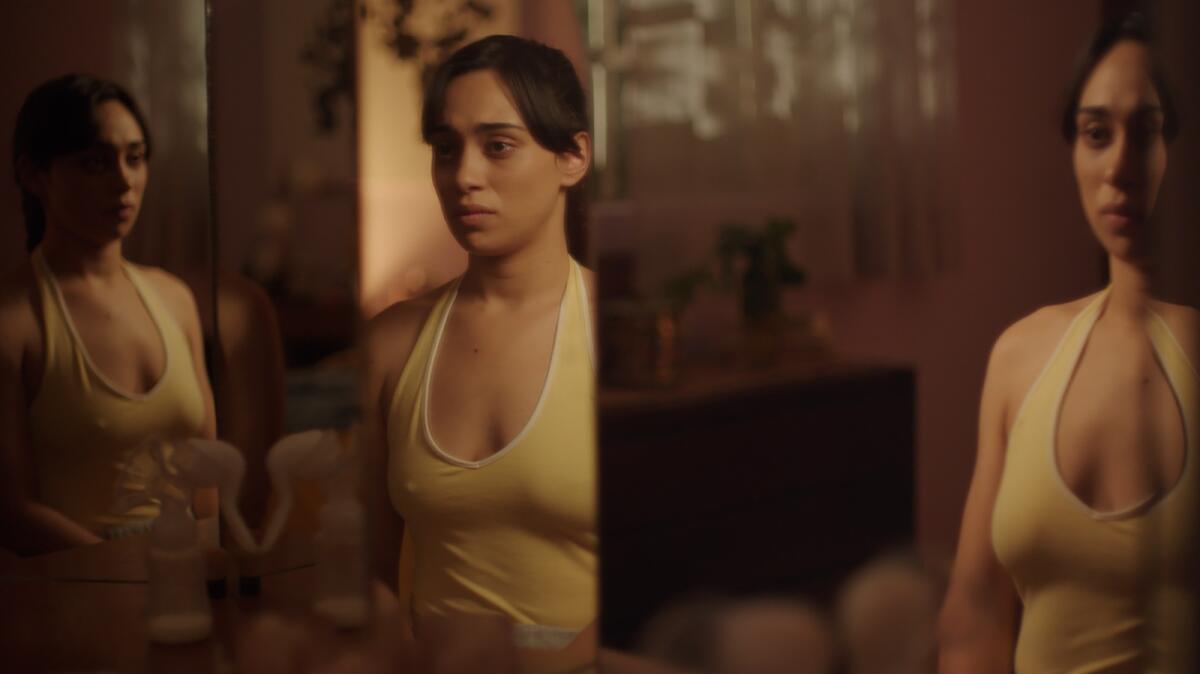
Motherhood turns monstrous in this outstanding body horror debut from writer-director Michelle Garza Cervera. Pregnant with her first child and in a seemingly happy marriage, Valeria (Natalia Solián) feels uneasy about the expectation that her own aspirations must become secondary to her role as a parent. Soon, otherworldly visions, so vivid and grotesque that they terrify her, throw her life into chaos. The more this soon-to-be mother tries to ignore whatever entity is haunting her, the stronger it becomes. The filmmaker impresses by successfully packing sharp social commentary into an affecting genre piece.
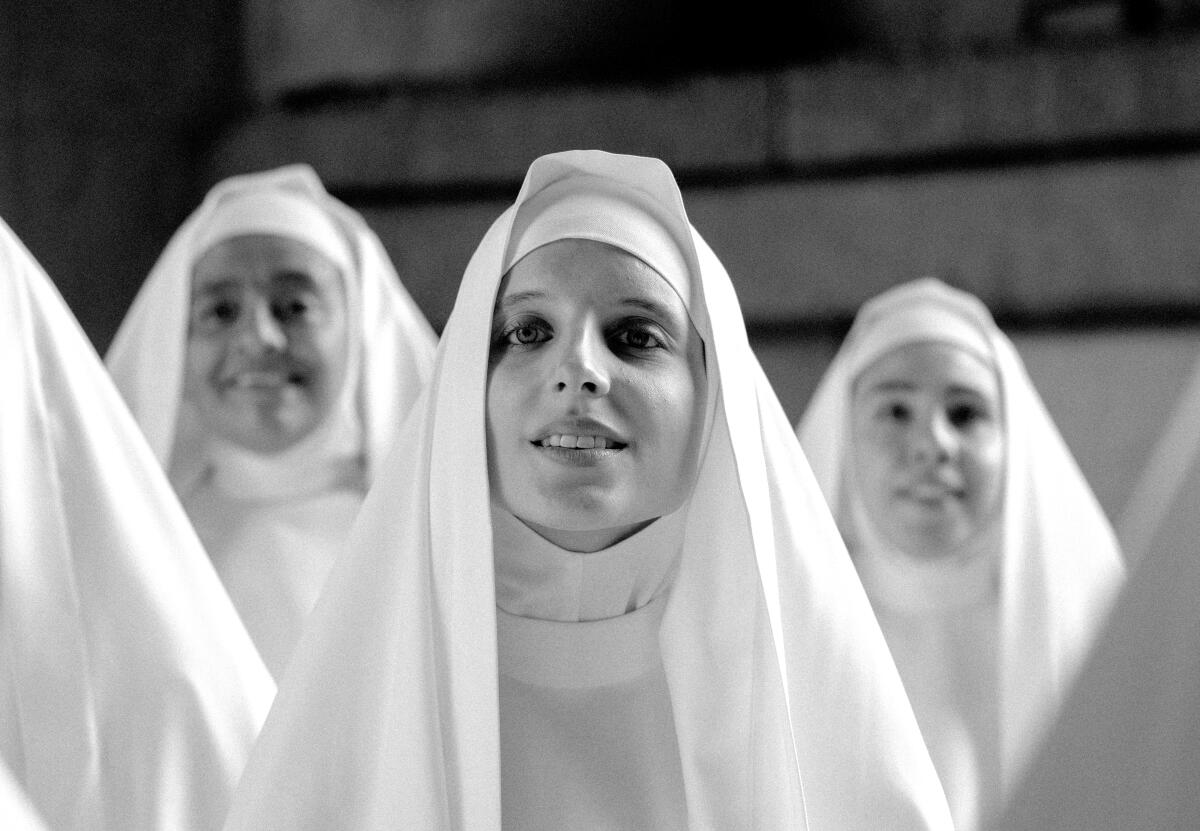
9. ‘El Conde’
Prolific Chilean director Pablo Larraín imagines an alternative reality where his country’s most despicable villain, dictator Augusto Pinochet (played here by Jaime Vadell), is a vampire who’s fanned the flames of fascism for centuries. Shot in stark black-and-white by veteran cinematographer Edward Lachman, this sharp-tooted satire also takes aim at the Catholic Church, for its own guilt and greed, as it mocks the self-aggrandizing personality of the blood-sucking murderer, whose witless middle-age children can’t wait to inherit his ill-obtained wealth. It’s a bizarre premise that amuses and disgusts in equal measures.
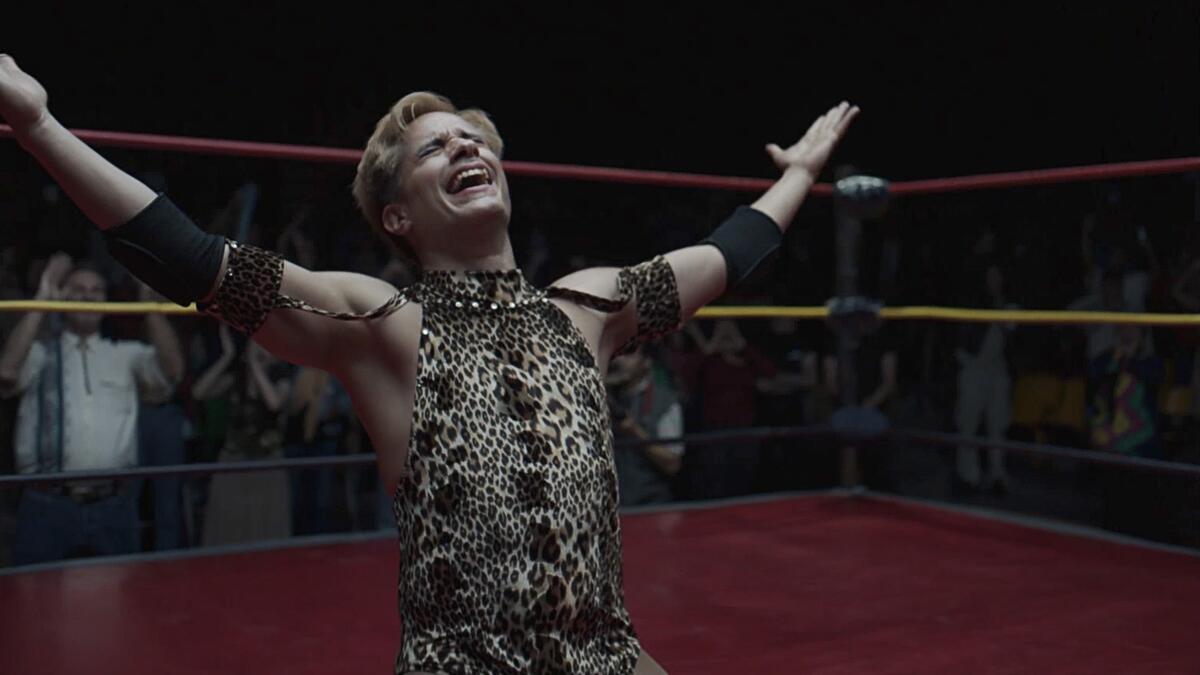
8. ‘Cassandro’
Clad in dazzling leotards, Gael García Bernal embodies lucha libre legend Saúl Armendáriz, better known by the moniker of Cassandro, in this refreshing biopic that marks the fiction directorial debut of Oscar-winning documentarian Roger Ross Williams. Born in El Paso, the openly gay wrestler fought to earn a place in Ciudad Juarez’s lucha scene at a time plagued with rampant homophobia. In one of his most memorable performances to date, García Bernal plays Cassandro with a dignified defiance and an infectious exuberance inside and outside the ring, proving that sometimes heroes do wear capes, albeit bedazzled ones.
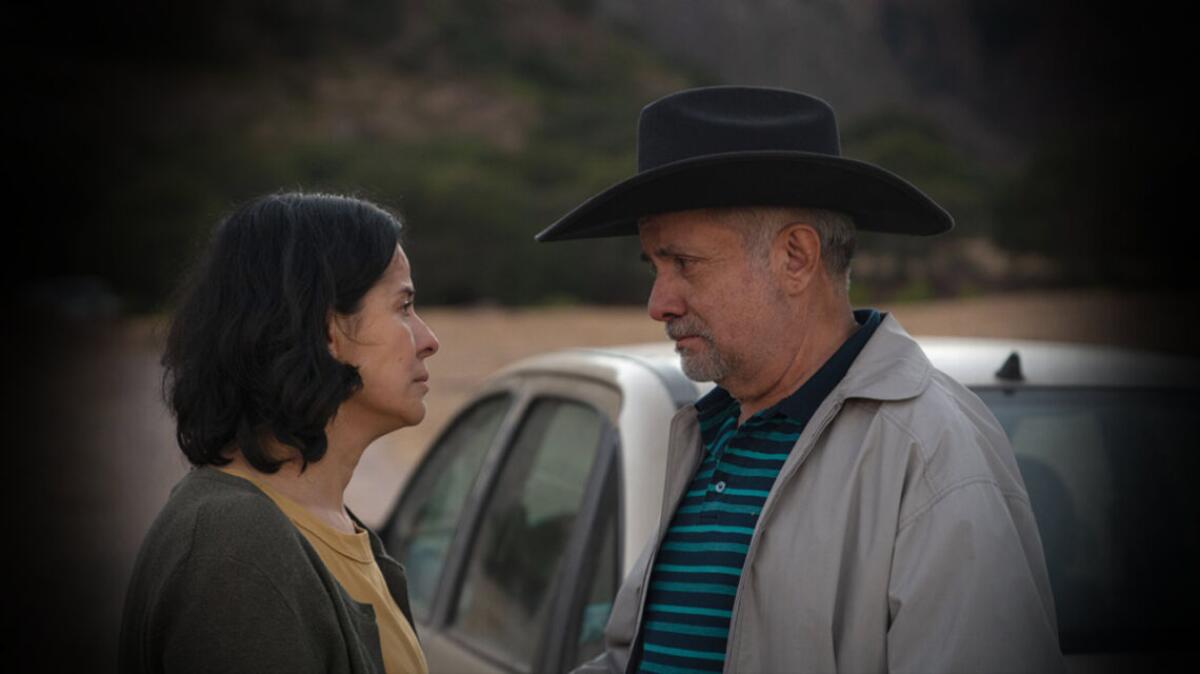
7. ‘La Civil’
Anchored on the earth-shattering, career-best performance by actress Arcelia Ramirez (a staple in both film and telenovelas) this hard-hitting drama offers a singular perspective on the drug violence that plagues Mexico. When her daughter is kidnapped, Cielo (Ramirez), an ordinary homemaker, doesn’t wait for the authorities to act. Instead, with nothing to lose, she risks her life and becomes a fearless amateur detective to try to rescue her. Ramirez’s potent portrayal of motherly desperation morphed into scorching rage makes this social realist thriller a devastating, hard-to-watch, yet unmissable experience.
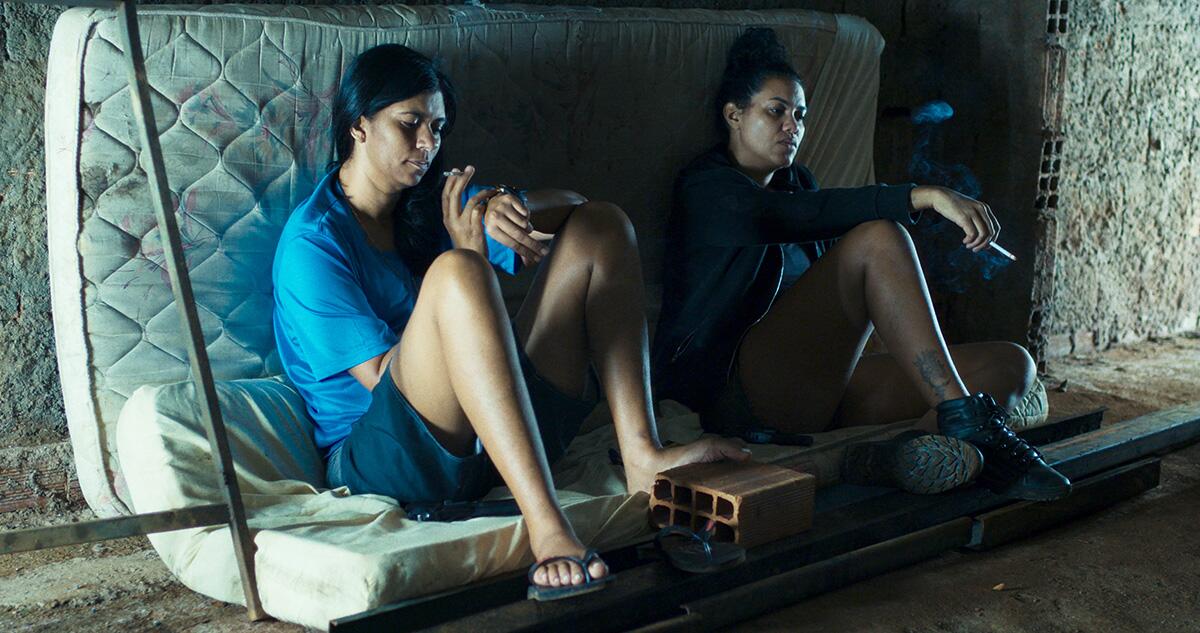
6. ‘Dry Ground Burning’
An incendiary vision of feminist revolution, this Brazilian gem, which blends in elements of nonfiction, is the latest from co-directors Joana Pimenta and Adirley Queirós. Chitara (Joana Darc Furtado) leads an all-female gang dedicated to opposing the far-right regime of Jair Bolsonaro and support the most vulnerable. One key way they do that is by stealing oil from underground pipelines so it can later be sold at a cheaper price as gasoline. Interspersed throughout, Chitara’s close relationship with half sister Léa (Léa Alves Silva) adds another dramatic dimension to a compelling work.
5. ‘The Kings of the World’
Tender brotherhood forged through hardship is what defines this stunning sophomore effort from Colombian director Laura Mora Ortega. With a keen eye for breathtaking imagery and dreamlike sequences, she follows a group of tough but loving adolescent boys without families or homes, all of them played with staggering potency by first-time untrained actors. When one of them, Rá (Carlos Andrés Castañeda), learns he may be the owner of a piece of land, he and the friends leave the streets of Medellín for the mountains and embark on a visceral and touching coming-of-age journey.

4. ‘Spider-Man: Across the Spider-Verse’
It’s rare when a sequel to an acclaimed production not only matches but also surpasses the original. But that’s precisely what Miles Morales’ (Shameik Moore) latest animated adventure accomplishes. Thrown into an even more thrilling and thematically mature adventure, the teen hero encounters countless other versions of Spider-Man and discovers his unique role as part of this legion. A visual marvel with style to spare, this installment in the saga also shines because of a relatable heartfelt scene between Miles and his mother, Rio (warmly voiced by Nuyorican actress Luna Lauren Velez), that raises the emotional stakes.
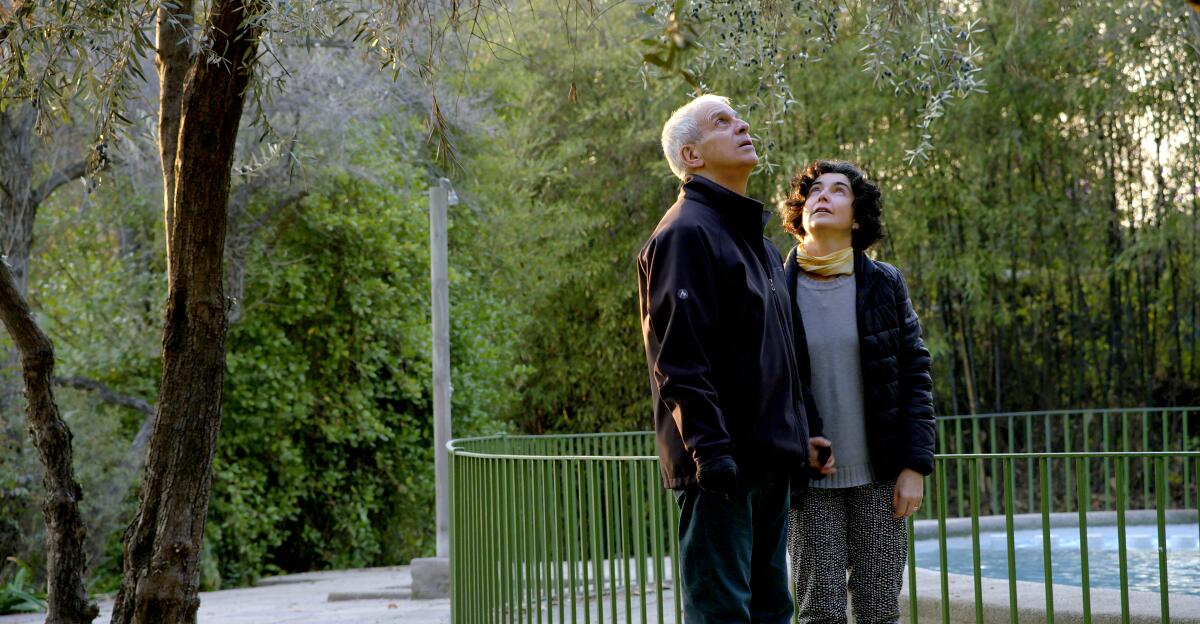
The most heart-swelling portrait of love this year comes in the form of director Maite Alberdi’s exquisite documentary about Chilean journalist Augusto Góngora and actress Paulina Urrutia. Alberdi, who was nominated for an Oscar in 2021 for “The Mole Agent,” captures the couple’s intimate struggles as Góngora battles Alzheimer’s disease while Urrutia remains unwavering by his side. At times heartbreaking and others soul-nourishing, the film captures moments between them that speak about the preservation of memory — of their relationship, who they have been to each other and of their country’s turbulent history.
2. ‘Trenque Lauquen’
Titled after a rural town not too far from Buenos Aires, this extraordinarily fascinating puzzle of a film chronicles the search for Laura (Laura Paredes), a botanist who’s suddenly disappeared. But that premise is only the beginning, as the story of who Laura was for the different people she came into contact with unravels across 12 chapters divided into two feature-length parts that together amount to more than four hours. Rather than offering concrete answers, director Laura Citarella opens many narrative doors to construct a truly engrossing cinematic experience.
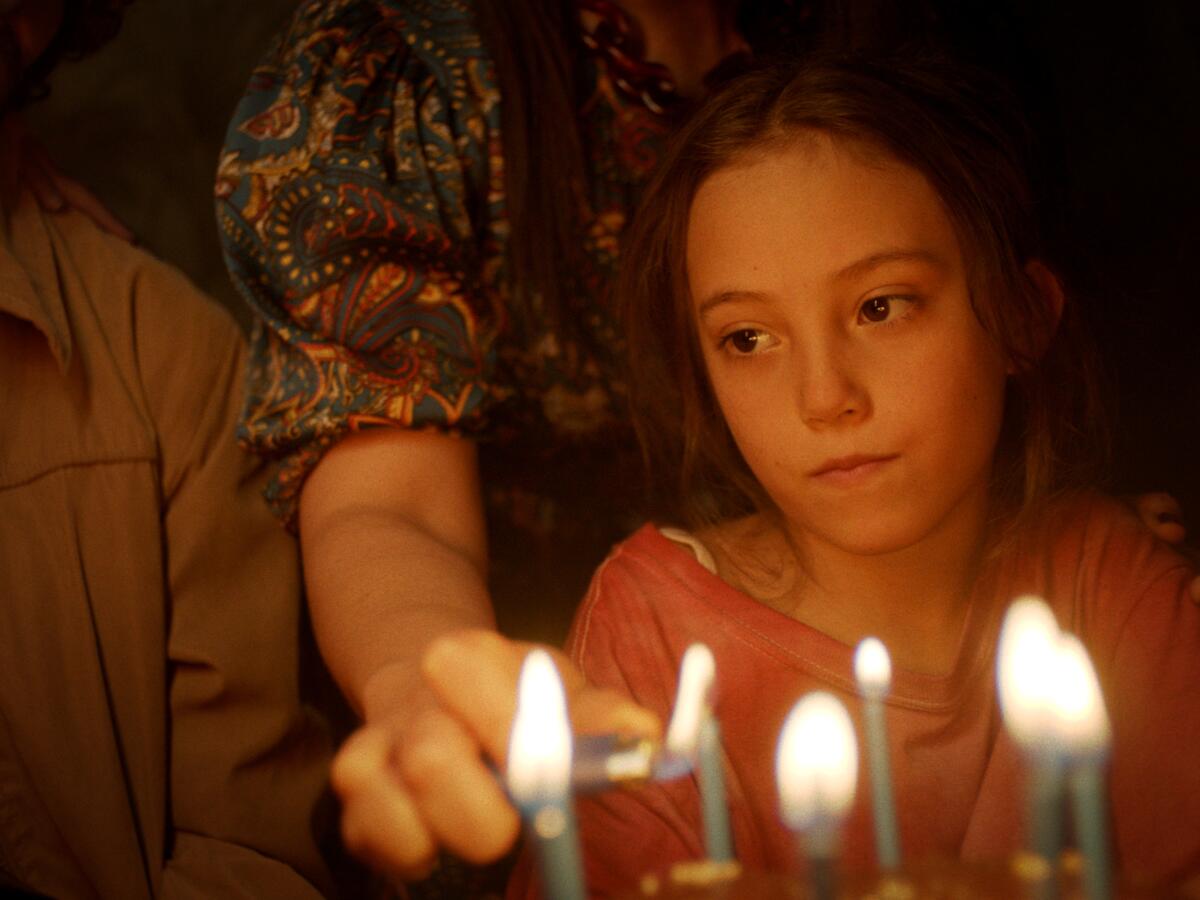
1. ‘Totem’
Lila Avilés’ warmhearted and incredibly lived-in follow-up to “The Chambermaid” immerses us in the microcosm of a Mexican family as its members prepare for a special birthday party. An acting revelation, newcomer Naíma Sentíes plays Sol, a 7-year-old girl desperate to spend time with her terminally ill father. Sol’s aunts and grandfather attempt to grapple with their own grief while hoping to protect her from the impending pain of losing a loved one. Already acclaimed around the world, this humanist triumph is Mexico’s current Oscar entry for international feature film.
Consider subscribing to the Los Angeles Times
Your support helps us deliver the news that matters most. Become a subscriber.
Things we read this week that we think you should read
From De Los
The lesser-known Latin American history behind the poinsettia flower
Poinsettias are native to North and Central America, specifically areas of southwestern Mexico and Guatemala, but they are not native to the U.S. despite their popularity.
How a chef is using cacao ceremonies to connect students to ancestral practices
Known for her vegan hibiscus tacos, Stephanie Villegas also hosts artisanal chocolate classes where she teaches students the process of using ancestral tools and techniques.
Questions like “Y el/la novio/a?” or comments about body image can shift the joyful spirit to a hostile environment. Here are some healthy ways to navigate through touchy subjects.
From the archives: The 24 best Christmas songs en Español
From Puerto Rican salsa to Bronx bachata to Mexican balladry — and something of a surprise at No. 1 — here’s the perfect playlist for your holiday season.
From the L.A. Times
Mexico’s fliers: An ancient tradition from 100 feet up
Children across Mexico grow up learning the voladores ritual, where they fly around a 100-foot tree.
The Latinx experience chronicled
Get the Latinx Files newsletter for stories that capture the multitudes within our communities.
You may occasionally receive promotional content from the Los Angeles Times.



